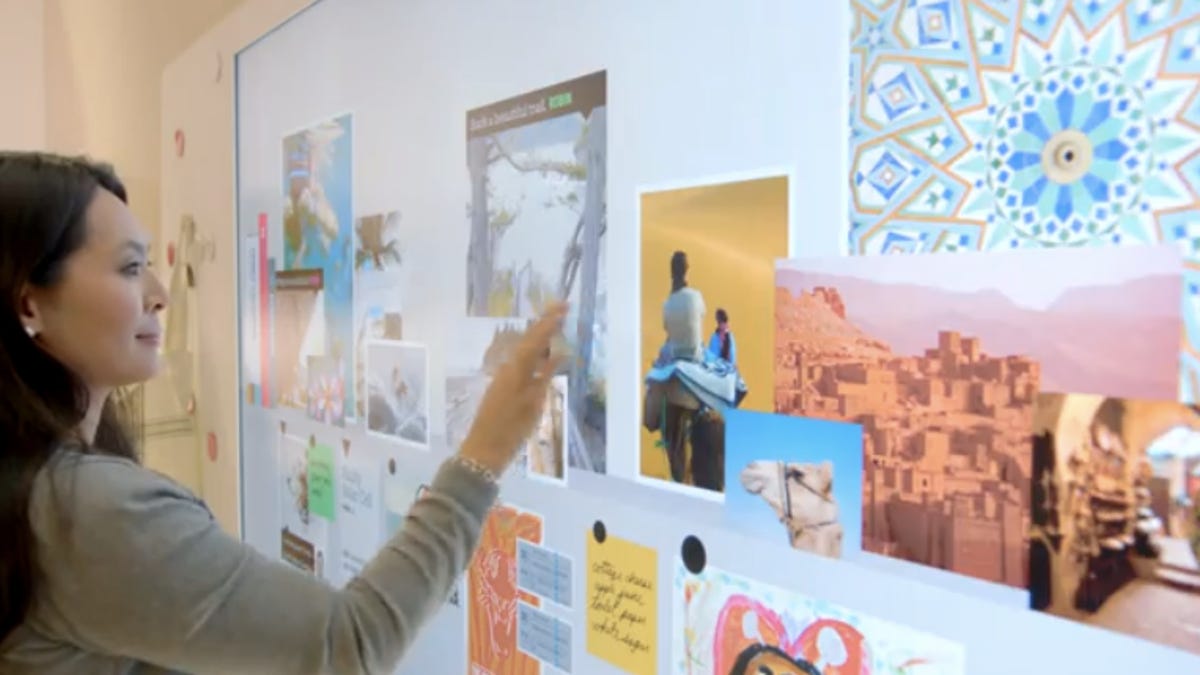Microsoft's tame view of the digital future
A video showcasing Microsoft's new Envisioning Center seems designed to assure people that the future won't shock them.

Microsoft has a vision for the future. People interact with large digital screens via voice and touch, presumably running future versions of Windows and Skype. For example, recipes are suggested based on what's in the refrigerator, and a video hosted by a professional chef walks a novice cook through the steps of making a dish. In another example, grandma can read bedtime stories to the grandkids remotely via a large screen.
The scenarios are part of a video showcasing Microsoft's new Envisioning Center, which opened this month on the company's Redmond, Wash., campus. The Envisioning Center is aimed at "imagining how technology could be used to make life easier and more enjoyable, sometimes in small ways and sometimes in revolutionary ones," according to Microsoft's Steve Clayton. He cautions that the ideas in the video are not meant to be predictive about Microsoft's future products.
For an envisioning video, Microsoft's scenarios aren't that futuristic or imaginative. Kids can Skype with grandparents on a big screen today. Touch screens, voice commands, and moving tiles around on a screen are not breaking new ground. You can find recipes and view videos while you cook on a variety of devices. Appliances are getting smarter -- Dacor is selling an oven with a 7-inch Android tablet built into the unit with alerts and with guides for preparing dishes. Microsoft's own PixelSense technology (see below) offers the big screen, interactive experience in the present tense.
It's as if the scenarios were designed to assure people that the future won't shock them. It may impress older people who want to have a more intelligent, Windows-enabled refrigerator, but the younger generation who are growing into the spenders of tomorrow, are more attracted by Google Glass (see below), 3D printing, and the innovative apps and platforms fueled by inexpensive broadband everywhere.
Microsoft's envisioning of the future is tame, more of a gradual upgrade of Windows and Skype rather than a major leap forward. Apple's 1987 Knowledge Navigator concept video, was a far more ambitious envisioning of the future. The video features an iPad-like device and a virtual personal assistant that does everything a human assistant would do but much better and at lower cost.
More than 25 years later, Knowledge Navigator still feels visionary, and while Apple hasn't realized that vision, it has been the best at rethinking existing technologies and making them more usable and compelling, as with the iPod, iPhone, and iPad. Google has been more ambitious, funding moon-shot projects like driverless cars and Google Glass. Microsoft seems more content to let others drive consumer-technology innovation, outside of the Xbox, and to try and catch up later.

